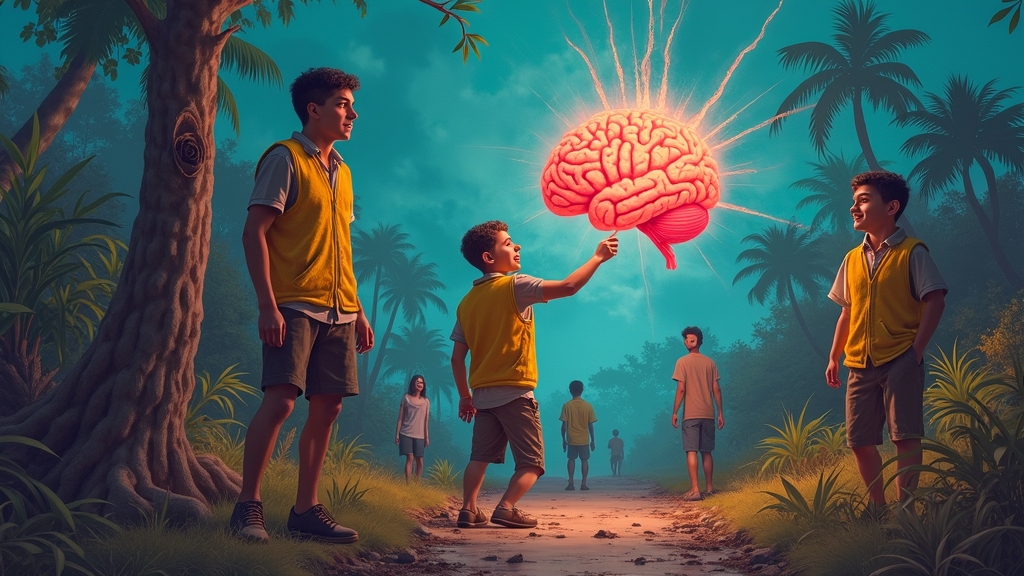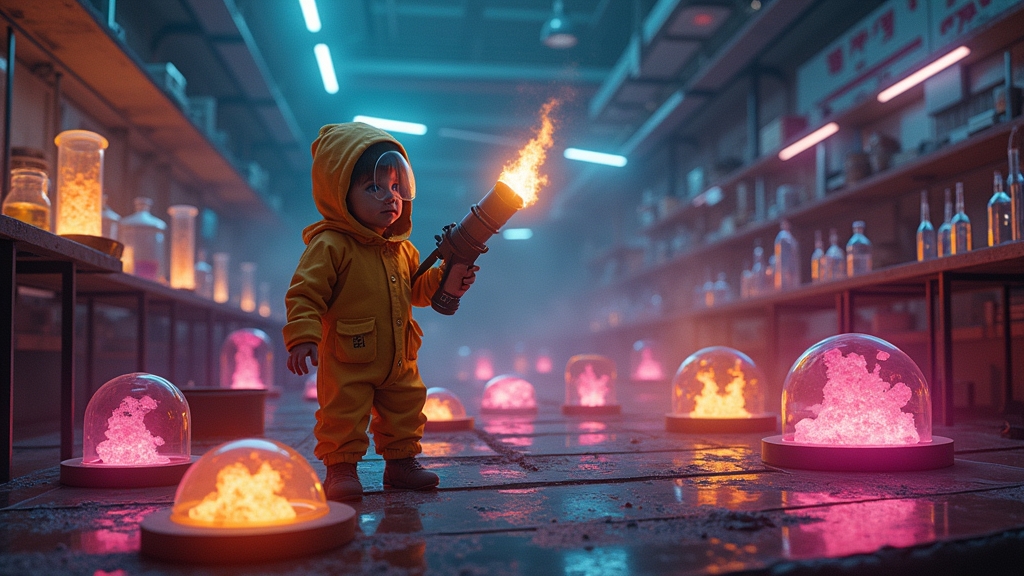SILICON VALLEY WIZARDS FORCE-FEED PUBLIC EVER LARGER DIGITAL BRAINS DESPITE WIDESPREAD DISTRUST
TECH BROS SHOCKED THAT PEOPLE DON’T TRUST THEIR CREEPY MIND MACHINES
In what experts are calling “the least surprising development since water was found to be wet,” Stanford University’s 2025 AI Index has revealed that tech companies continue to cram increasingly complex models down society’s collective throat while somehow appearing baffled that regular humans remain skeptical.
The report confirms that AI models have grown by an astonishing 427% in complexity, a metric that absolutely nobody except venture capitalists and Silicon Valley engineers gives a flying f@#k about.
BIGGER DOESN’T MEAN BETTER, SWEETHEART
“What we’re seeing is the equivalent of making bigger and bigger hammers when people just wanted a nail that works,” explains Dr. Obvious Metaphor, head of Stanford’s Department of Pointing Out What Silicon Valley Refuses to Acknowledge. “These companies are basically saying ‘Oh, you don’t trust our technology? What if we make it EVEN LESS COMPREHENSIBLE?'”
The index reveals that tech firms have invested approximately $847 billion in making AI systems that can write mediocre poetry but still struggle to understand when humans are being sarcastic, a skill mastered by most 12-year-olds.
PUBLIC TRUST AT ROCK BOTTOM, TECH BROS STILL CONFUSED WHY
Despite the industry’s bewilderment, public polling indicates that 78% of Americans “would rather trust their drunk uncle at Thanksgiving than an AI system with important decisions,” while a staggering 91% believe “the people making these systems have never actually met a normal human being.”
“It’s completely mystifying why people don’t trust our black-box decision systems that we ourselves don’t understand,” said Chip Overclocked, CEO of AlgorithmCo, while nervously adjusting his $5,000 fleece vest. “We’ve tried everything except transparency, accountability, or addressing legitimate concerns.”
EXPERTS PREDICT MORE OF THE SAME BULLS#!T
Professor Cassandra Beenrightallalong from the Institute for Predicting Completely Obvious Outcomes says the industry shows no signs of changing course.
“These companies are like teenagers who keep touching a hot stove and wondering why they get burned,” she explained. “By 2026, models will be so complex they’ll require the energy consumption of a small country just to write a grocery list that still somehow includes items you never asked for.”
The report concludes that if current trends continue, by 2027 AI systems will be capable of writing entire novels, composing symphonies, and solving complex mathematical equations, but will still mysteriously recommend beard oil to 12-year-old girls and kitchen appliances to men who’ve expressed interest in basketball.
In related news, 97% of actual problems facing humanity remain completely unsolved.




